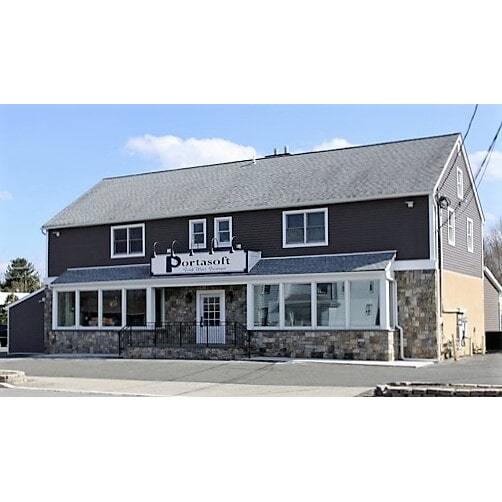Soft water is said to help people manage skin conditions like eczema. Since water softening has already turned hard water into soft water, people with other skin conditions will find that their hair and scalp are easier to deal with.
Although we can help you understand the potential dangers present in public drinking water, the core guidelines for water quality are available online. You can find data on the maximum contaminant levels allowed in drinking water in Title 40 of the Code Federal Regulations (CFR). http://www.access.gpo.gov/nara/cfr/waisidx_03/40cfr141_03.html
Water softening can help households cut back costs in the long run because home appliances like laundry machines, kettles, and dishwashers will last longer and perform better. Homeowners will also be able to lessen the number of toiletries used.
How can a water treatment system for my home or business pay for itself over time? Switching over from hard water to soft water means the minerals in the water will no longer collect in pipes and appliances, which will both work more efficiently and last longer, saving you money.
Do you get frustrated with the cleaning job your dishwasher does, particularly on fine china? Instead of getting a new dishwasher, the problem is likely the effects of hard water. You’ll notice cleaner dishes after addressing your hard water issue.
Does it ever seem like a waste of space to fill your refrigerator with bottled water simply because your tap water has a funny taste? Let’s talk about the water treatment options available to your home to improve your water’s overall quality.
It’s important to remember that hard water is more than just a nuisance when you want a drink of water. In some cases, you may find that the minerals dissolved in the water can actually eat holes in the clothing you wash with it.
Having an infant at home means that the quality of your water supply must be top notch. As such, investing in proper water treatment systems might be necessary, especially if your water supply leaves a lot to be desired.
When water has excess minerals, such as magnesium and calcium, it is called "hard water." Hard ward can cause issues, as the minerals will stick to pots, making them harder to get clean, and will also keep soap from lathering properly.
People have different reasons for getting a water softener but the most common reasons are: (1) to reduce energy consumption, (2) to maximize soap and other toiletries, and (3) to maintain plumbing fixture function and appearance.
Solar salt (used in water softening systems) is a natural product made by evaporating seawater and is actually harvested much like an agricultural crop. Sometimes, you will see little black specks in the solar salt, but this won’t adversely affect the softening process.
Did you know that water-borne infections are responsible for more than 80 percent of the diseases all over the world? This is why the development of technologies to treat water and make it drinkable have been so important over the years.
Did you know that conditioned water can help to reduce the amount of shampoo, conditioner and soap you use? Because the active ingredients in these products are more effective in conditioned water, you can use less of these products and save money.
How much salt does a water softener use? The amount depends on two things: (1) the amount of water the household uses, and (2) the number of contaminants in the water.
In 1892, at the time when hundreds of people in Hamburg, Germany were suffering from cholera, the folks in nearby Altona were just fine. Cholera is one of a number of waterborne illnesses, and the people of Altona filtered their water while the citizens of Hamburg didn’t.
A good water conditioning system yields benefits throughout your home. Clothes washed in soft water can last up to 30 percent longer than those washed in cold water. Likewise, appliances that use soft water can last an average of 29 percent longer.
Did you know that water treatment and water filtration are not the same? Water treatment refers to a variety of processes that are used to improve the quality of water such as softening, UV disinfection, distilling and yes, filtration.
There are three types of salt that are sold for water softening. These are: (1) rock salt and (2) evaporated salt, obtained from underground salt deposits, and (3) solar salt obtained through evaporation of seawater.
We believe that everyone deserves clean and healthy water. That is why we offer various financing and payment plans to help make the cost a bit easier to manage.
Portasoft of Morris County will be closed on Tuesday February 2nd due to snow conditions. Service calls and installations will be rescheduled.
Time to add salt to your water softener? Make sure you use the right kind and the right amount. Salt is sold in 25-, 40-, and 50-pound bags. It can be rock salt, solar salt, or evaporated salt. Different softeners run better on different amounts or different kinds. If you're unsure, a water conditioning dealer can help.
On Monday February 1st 2021, Portasoft of Morris County will be closed due to the snow. All service calls and installations will be called and rescheduled as soon as possible.
Cloudy water is a sign that you probably have suspended or dissolved solids present. Proper water testing by a water treatment expert will tell you what's causing the cloudiness and what the proper method of treatment is to solve it.
Water conditioners and water softeners are two different products. A water softener often relies on sodium, or common salt, to basically take the place of minerals such as magnesium and calcium, according to experts. Water conditioning systems do not use sodium.


